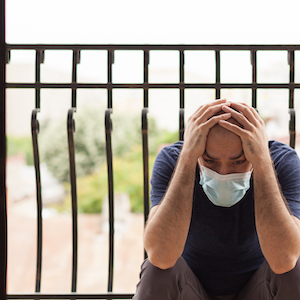The lived experience of hospitalized and non-hospitalized health care providers of COVID-19 pandemic: a qualitative study

All claims expressed in this article are solely those of the authors and do not necessarily represent those of their affiliated organizations, or those of the publisher, the editors and the reviewers. Any product that may be evaluated in this article or claim that may be made by its manufacturer is not guaranteed or endorsed by the publisher.
Accepted: 13 December 2022
Authors
This paper explores the lived experience and any mental health issues of COVID-19 survivors throughout the disease crisis using a qualitative method. The semi-structured interviewing method was conducted with COVID-19 patients who were admitted and non-admitted to hospitals in Kurdistan, Iraq. The patients had positive and negative perceptions of the COVID-19 pandemic and disease, including beliefs and thoughts about COVID-19, conspiracy thinking, and concerns toward the family and their children. The patients were affected by the disease in different ways including physical consequences of COVID-19 infection, social isolation, life changes, and mental wellbeing. But they had some coping strategies to overcome the disease, such as seeking help, preventive measures, and coping techniques. The patients had some concerns about health settings and therapeutic procedures, including lack of sufficient care, receptiveness, hospital environment, and infection guidelines. This study showed that the COVID-19 disease had devastating effects on patients either physically or psychologically.
How to Cite

This work is licensed under a Creative Commons Attribution-NonCommercial 4.0 International License.






